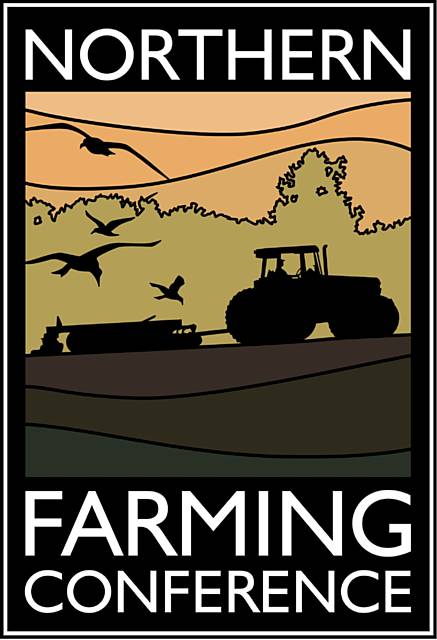Never a better time to get into farming
Date published: 12 November 2012

Northern Farming Conference
The biggest obstacle to young people going into farming is the price of land – but there has never been a better time to go into the industry, a conference has heard.
Despite a drought, the wettest summer on record and a poor harvest, the future for agriculture is bright but challenging, heard 220 delegates at the Northern Farming Conference.
Farmer and columnist Guy Smith said: “The biggest hurdle for young people coming into the industry is the price of land. It is getting out of hand. Paying £10,000 an acre just builds into that inertia.”
However, CLA President Harry Cotterell said: “Despite all the difficulties, this is a very positive time to be going into agriculture. We have very good agricultural colleges filling a really vibrant industry. We need to start thinking about what the industry is going to look like in 50 years time and build an industry that’s fit for purpose for the future but it is a very exciting time to start.”
Perthshire sheep farmer and Nuffield scholar Michael Blanche said: “We need young people to believe that they can farm, that it is possible, that they can succeed against the odds and find their own way.”
As a first generation farmer who failed to get a tenancy seven times when he was starting out, he said: “Above all, be resilient, be the best and keep it simple. Giving up is easy. To be special, never give up. We don’t fail because of a lack of resources but because of a lack of resourcefulness.
“Farming can be the most depressing industry in the world but it can also be the most exciting in the world. It depends on who you talk to. We need the excited voices to shout much louder.”
He added the farming ladder is “a flatpack with no instructions and several screws missing” and that an effective ladder and progression route was essential for an effective industry.
Julian Sturdy, MP for York Outer, said: “Our industry needs young farmers. We need them to take it to the next level but we also need a government that will champion our industry through thick and thin and as a farmer in politics I will be pushing that all the way. We also have to support all sectors, not just large businesses. Getting into farming is one of the hardest things to do and realistically the only way young people are going to start up is on a small scale and so we need to support small farms as well as the big players.”
In relation to CAP reform, he said: “We need to be realistic. Everyone is Europe is having to tighten their belts and we must do our share. It is vital we can compete. We have to invest in a future if we are going to meet the rising demands for food.”
Yorkshire beef farmer Mike Powley said there were numerous reasons to be cheerful, particularly in relation to the export market: The ability to sell British offal abroad, adding about £120 to £130 of value to each carcass; the emergence of a prosperous Russian market with a taste in good quality beef; and a growth in interest in cooking at home in the UK are all helping. “There is a huge rise in interest in home cooking and cooking from scratch and consumers are looking for primary products. That is very positive for us.”
It was not all good news though. Anne McIntosh MP, Chair of the Environment, Food and Rural Affairs Select Committee said: “We face twin challenges of climate change and food security. We must have a sustainable countryside for the future, a one nation sustainable countryside.”
She said that “reluctantly” she had to support a pilot badger cull. “All of our cattle producers are terrified of having just one rogue animal in their herd. We have to do something.”
On Ash Dieback Disease, she said she was “appalled” by the fragmented response of forestry research and plant health organisations. “We need to forget our differences, pull together, pool our resources and move forward very quickly. Why on earth are we exporting seeds to other European countries to then import saplings which are often diseased?”
GM foods were among the subjects discussed at the conference with Mary Creagh, Shadow Defra Secretary of State, saying it was time to reopen the debate. Arable farmer Andrew Gloag said: “In order to feed the world population genetically modified crops will have to be embraced. At the moment, I am doing the best I can and producing the best I can with the resources available to me but in the future, GM will have to be embraced.
Guy Smith said: “As a farmer, it makes a whole heap of sense to me. It lowers the cost of production and makes us more competitive on the global scene. The sooner I can have it on my farm the happier I will be. However, I produce food people want to eat and at the moment there is no appetite for it. In terms of technology I want it as soon as possible but it is not sellable in the UK at the moment.”
The Northern Farming Conference is a joint venture between the CLA, Strutt & Parker, Dickinson Dees, Armstrong Watson, Catchment Sensitive Farming and Gibson & Co Solicitors.
Do you have a story for us?
Let us know by emailing news@rochdaleonline.co.uk
All contact will be treated in confidence.
Most Viewed News Stories
To contact the Rochdale Online news desk, email news@rochdaleonline.co.uk or visit our news submission page.
To get the latest news on your desktop or mobile, follow Rochdale Online on Twitter and Facebook.



